What the Amish Teach Us Book Winner & Release Today (Plus Podcast #4 on Forgiveness)
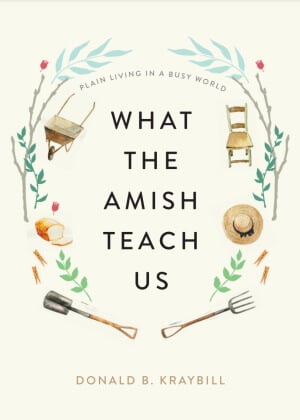 Following last week’s insightful Q-and-A with Donald Kraybill, we’ve got a winner of What the Amish Teach Us: Plain Living in a Busy World, his new book just released today. This book is unlike others Don has written – a series of 22 essays sharing things that he has learned from his friendships with Amish people and study of Amish life, spanning decades.
Following last week’s insightful Q-and-A with Donald Kraybill, we’ve got a winner of What the Amish Teach Us: Plain Living in a Busy World, his new book just released today. This book is unlike others Don has written – a series of 22 essays sharing things that he has learned from his friendships with Amish people and study of Amish life, spanning decades.
Before we get to the winner, first a bit on episode #4 from the companion series of podcasts.
Podcast #4: Forgiveness
The fourth in the series of companion podcasts called “What I Learned From The Amish” covers forgiveness. Previous episodes explored the topics of community, technology, and apprenticeship. As in previous episodes, this podcast features insights from Don, as well as frank conversation with Amish friend Ben.
More on this episode:
An English neighbor shoots ten young girls in an Amish school killing five of them. Within hours the Amish offer forgiveness to the offender. Forgiveness is a key practice in Amish life. Their community demonstrates how forgiveness brings freedom and healing and enhances our mental wellbeing.
“About six hours after the shooting, several Amish men, spontaneously reched out to the shooter’s spouse and her parents. No one recalls the exact words that were said. One of the Amish men, told me, we said words like—sorry, love you, no grudges, we forgive you, don’t move away. “We didn’t need any meetings” a bishop told me later. It’s just what Jesus taught us to do.” Word of the shocking forgiveness went viral, with some twenty-four hundred, media stories worldwide.
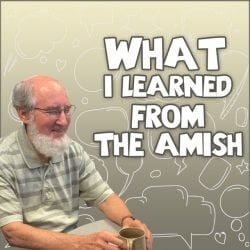 Forgiveness, might seem like an old fashion idea, in a society obsessed with retaliation. But the modern psychological evidence is clear. Forgiveness, whether religiously motivated or not, is in our own self-interest. It slows our pulse, lowers our blood pressure, and reduces anxiety. It also improves our immune system and self-esteem.
Forgiveness, might seem like an old fashion idea, in a society obsessed with retaliation. But the modern psychological evidence is clear. Forgiveness, whether religiously motivated or not, is in our own self-interest. It slows our pulse, lowers our blood pressure, and reduces anxiety. It also improves our immune system and self-esteem.
Amish people have learned, that forgiveness frees them from a life filled with bitterness and grudges. And forgiveness provides them a pathway toward personal and social healing. I learned that there’s not a simple or single recipe for forgiveness. Each case is different. Doing it the Amish way or another way doesn’t matter. What matters, my dear friends, is taking the first step on a journey, a journey which promises above all, to bolster our mental health and our wellbeing.”
You can listen to the full episode here, as well as at Spotify, Amazon Music, and Apple Podcasts.
What the Amish Teach Us
Taking a look back at a few of his responses from the Q-and-A last week, Don shared what makes What the Amish Teach Us different from his many other books on the Amish. He replied:
This is a very different book than any of my other ones. It is not a broad sociological analysis of the strengths and weaknesses of Amish culture. Rather it’s a collection of twenty-two short essays (about a thousand words each). In each one I focus sharply on something that I’ve learned from the Amish. In other words, I show how certain Amish practices and values have shaped me.
I suggest throughout all the essays that many times the Amish are so far behind us, that they’re out ahead of us. Ironically, I think that, these horse-and-buggy-driving people have much to say to the rest of us in a hyper-everything world. Some of the essays deal with religious themes such as salvation and forgiveness. Others focus on technology and entrepreneurship. Still others zoom in on Amish practices such as limited choice, strong families, education, retirement, and dying.
I was also curious about some of the Amish people who he had befriended and learned from over the years as “sources of wisdom”:
I learned to know a bishop in Ohio who took time over several visits to help me understand the deeper nuances of Amish faith and practice. A married woman in Pennsylvania has graciously hosted my students in her home, answered dozens of questions and read drafts of my several of my book manuscripts. One couple who lost a child at the Nickel Mines shooting has warmly welcomed me into their home over the years and given me a new and deeper appreciation for their spirituality. I have a special friendship with an Amish man who I observed go through several jobs and stages in his life. He’s the kind of person that I can ask any question without creating offense. We have a lot of fun and laughter teasing each other.
To highlight one more reply, here’s Don’s response to my question about which “Amish aspect” would have the biggest impact on modern society if it were widely practiced:
Over the years of researching and writing about Amish society I have been intrigued with their emphasis on smallness. I have a chapter on small scale in the book. Early in my research I had a conversation with an Amish carpenter in his shop and I ask if he hopes to expand sometime. Absolutely not, he said. Why, I asked? His response: BIGNESS RUINS EVERYTHING.
I think that’s a powerful summary of the Amish commitment to keeping things small. In modern life we assume bigger is better. Think about the corporate monopolies, the growing infringement of government in all crevices of life. Bigger bigger bigger is the American mantra. Smallness, argue the Amish, keeps things humane.
Book Winner
I drew a winner at random from your comment entries using random.org. The lucky winner is:
Comment #7, Donna Bumbas
Donna, congrats to you and please contact me at ewesner[at]gmail[dot]com about getting your book sent to you. If you didn’t win, I hope you’ll pick up a copy of the book in either traditional hardcover format, or e-format such as Kindle.
You’ll find the book at Amazon, publisher Johns Hopkins University Press, or other booksellers. It promises to reward readers with insights and lessons that just might fit these times more than ever.
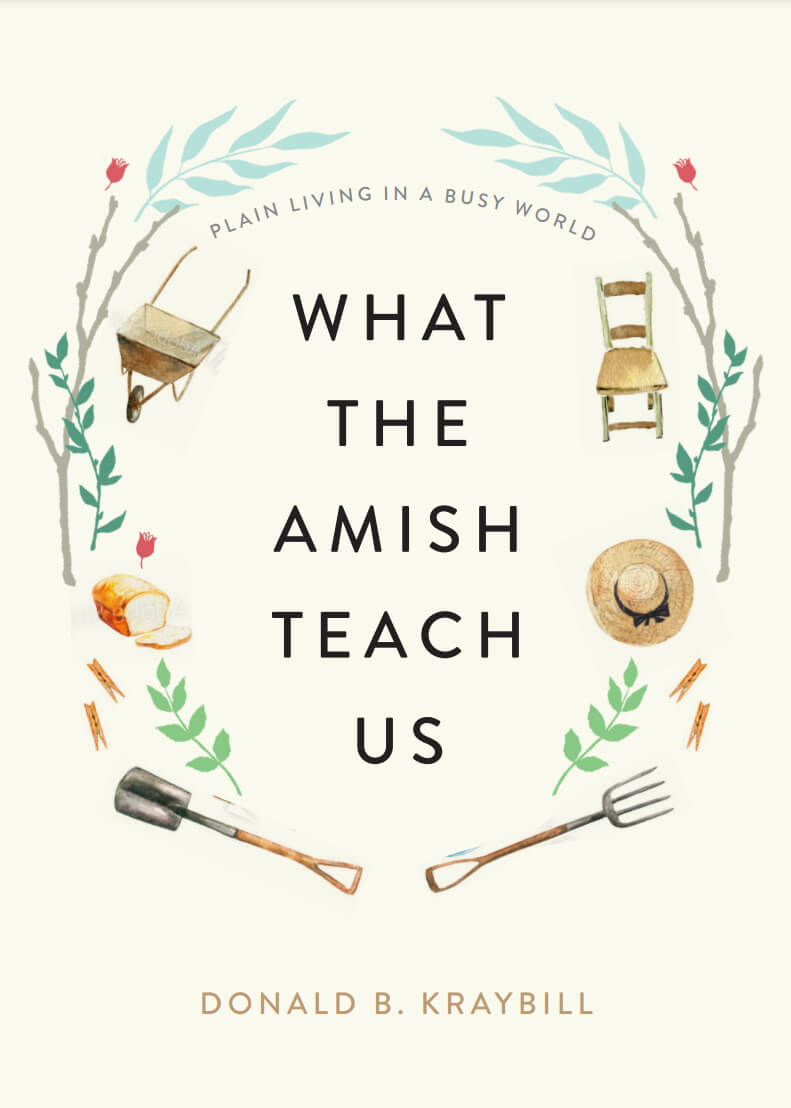
What the Amish Teach Us description via Johns Hopkins University Press:
It sounds audacious, but it’s true: the Amish have much to teach us. It may seem surreal to turn to one of America’s most traditional groups for lessons about living in a hyper-tech world—especially a horse-driving people who resist “progress” by snubbing cars, public grid power, and high school education. Still, their wisdom confirms that even when they seem so far behind, they’re out ahead of the rest of us.
Having spent four decades researching Amish communities, Donald B. Kraybill is in a unique position to share important lessons from these fascinating Plain people. In this inspiring book, we learn intriguing truths about community, family, education, faith, forgiveness, aging, and death from real Amish men and women. The Amish are ahead of us, for example, in relying on apprenticeship education. They have also out-Ubered Uber for nearly a century, hiring cars owned and operated by their neighbors. Kraybill also explains how the Amish function in modern society by rejecting new developments that harm their community, accepting those that enhance it, and adapting others to fit their values.
Pairing storytelling with informative and reflective passages, these twenty-two essays offer a critique of modern culture that is provocative yet practical. In a time when civil discourse is raw and coarse and our social fabric seems torn asunder, What the Amish Teach Us uproots our assumptions about progress and prods us to question why we do what we do.
What the Amish Teach Us Essay Titles
1. Riddles: Negotiating with Modernity
2. Villages: Webs of Well-Being
3. Community: Taming the Big “I”
4. Smallness: Bigness Ruins Everything
5. Tolerance: A Light on a Hill
6. Spirituality: A Back Road to Heaven
7. Family: A Deep and Durable Bond
8. Children: At Worship, Work, and Play
9. Parenting: Raising Sturdy Children
10. Education: The Way It Should Be
11. Apprenticeship: An Old New Idea
12. Technology: Taming the Beast
13. Hacking: Creative Bypasses
14. Entrepreneurs: Starting Stuff
15. Patience: Slow Down and Listen
16. Limits: Less Choice, More Joy
17. Rituals: A Natural Detox
18. Retirement: Aging in Place
19. Forgiveness: Pathway to Healing
20. Suffering: A Higher Plan
21. Nonresistance: No Pushback
22. Death: A Good Farewell
About the author:
Donald B. Kraybill is professor of sociology emeritus at Elizabethtown College and senior fellow in the Young Center for Anabaptist and Pietist Studies. An internationally recognized scholar, he has published many books and professional essays on the Amish and other Anabaptist communities in North America. His most recent book, What the Amish Teach Us is available from Johns Hopkins University Press and Amazon.


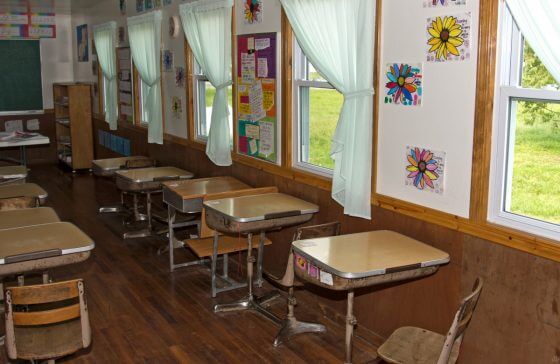
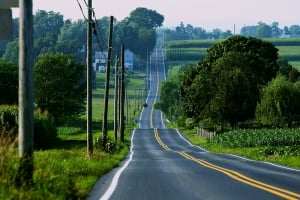

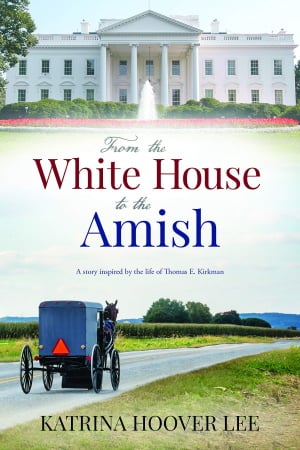
Another very informative podcast, Mr Kraybill. So glad to hear you will record more. Enjoy hearing from Ben as well. His personal insight adds so much to the conversation. And thanks to Eric for making it so easy to hear the podcast on Amish America. Love the website.
Thanks Judy! Glad you liked it. And I’ll share some more of these – the podcast series continues.